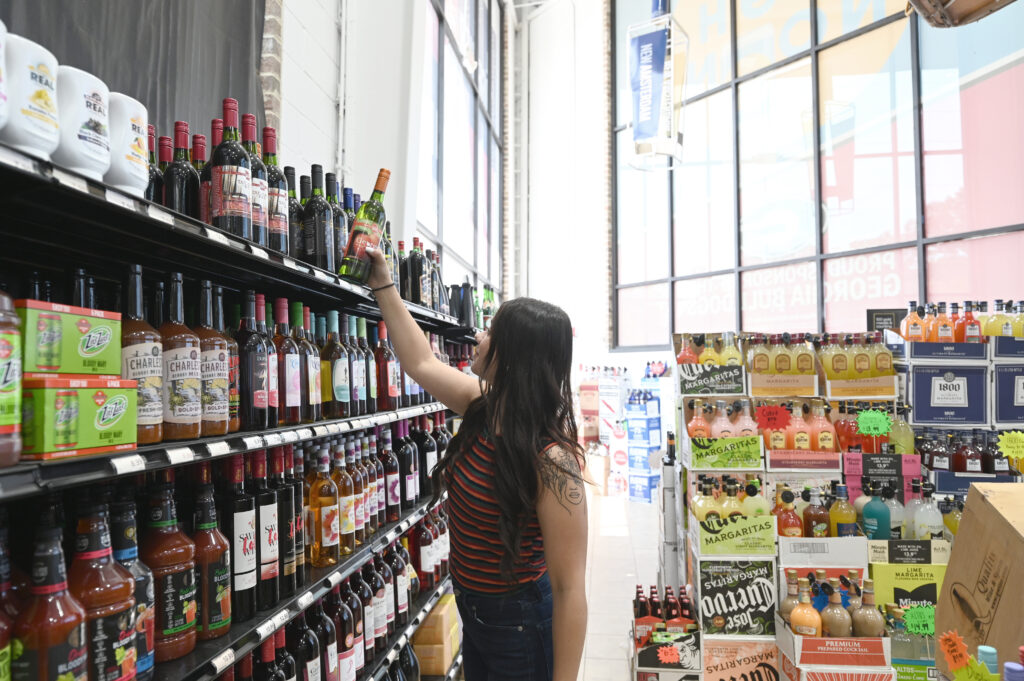
Georgia is a great place to work in the beer, wine, and spirits industry. You don’t need to look any farther than the success of Georgia’s alcohol industries to see how our state’s laws governing the production, distribution, and sales of alcohol lead to opportunity and success for so many of our neighbors.
Businesses that produce, distribute, and sell alcohol employ over 350,000 Georgians. Georgia receives $537.8 million in sales tax revenue from alcohol sales. And Georgia is a great state for beer—our state is number four in the nation in overall beer production. Craft beer has seen incredible growth over recent years—the number of craft breweries in Georgia has grown from 10 to 180 since 2011.
The laws regarding beer sales have been updated over the years to benefit craft brewers. In 2015, SB63 created a taproom model for craft breweries. In 2017 SB85 allowed craft breweries to sell 1 million 12-ounce beers yearly directly through their taprooms. And in 2021, HB273 doubled the number of beers craft breweries can sell to 2 million.
Change the System that Works?
Despite our state’s success, a few vocal critics are seeking to change the laws regarding alcohol production, distribution, and sales in Georgia. A bill like SB163—which failed during the 2024 legislative session—would tip the delicate balance lawmakers have worked for years to achieve in Georgia.
The bill would have allowed most Georgia brewers to become their own distributors, tearing apart the framework that has preserved jobs, public health, and public revenues for decades.
From Balanced to Unbalanced
At face value, these changes might seem reasonable. But making changes to a well-balanced system will lead to unintended consequences.
Consequences for Craft Producers:
- Uneven Playing Field: Allowing producers to distribute their own beers, wines, and spirits would benefit large national and international beverage companies who have the resources to scale quickly. As small producers struggle to raise the capital necessary to self-distribute, they would be crowded out from retail shelves. Today, distributors ensure small producers get visibility and distribution right alongside larger brands. Without independent distributors advocating for small brewers and distillers, the market would favor the larger companies.
- Cost & Infrastructure Challenges: Few small producers have the financial infrastructure and expertise to handle the massive demands of distribution. They’d need to invest in logistics, trucks, warehouses, insurance, a sales force, and much more. Sadly, these added expenses could make their operations more challenging and, in some cases, even unsustainable.
- Closures & Job Losses: As a result of these changes, many smaller craft producers would be squeezed out of the market due to increased costs and diminished market access. As small producers fail to keep up and shut down, thousands of Georgians could lose their jobs.
Consequences for Distributors
- Discontinuity: Georgia’s local distributors have been the backbone of our state’s alcohol industry for decades. They bring safety, stability, and mutually beneficial relationships to the business, helping to connect local producers with bars, restaurants, and retail stores. If producers are allowed to also become distributors, that backbone goes away—and alcohol sales become the new Wild West.
- Economic Pressure: Georgia’s distributors are locally owned and employ thousands of our neighbors. A change in our laws could shrink their business significantly or force them to scale back plans for future investments in emerging brands. Some distributors might survive by shifting their focus to niche markets, like craft or regional producers. But many would have to downsize or be forced out entirely.
Consequences for Retailers (Stores, Bars, and Restaurants)
- Complexity and Increased Overhead: Right now, retailers deal with a small number of distributors who manage a large portfolio of brands. If each producer became its own distributor, retailers would be overwhelmed by the need to coordinate with dozens, if not hundreds, of suppliers for ordering, sampling new options, and making deliveries. This could lead to logistical headaches, increased labor costs, and a more fragmented supply chain.
- Fewer Small Georgia Retailers: Small retailers would face pressure to compete with big retailers that could leverage their buying power to secure better deals from big brands. As prices rise and selection diminishes, independent shops will find it harder to survive.
Ain’t Broke? Don’t Fix It.
The proposed changes to Georgia’s laws might initially sound like they’d benefit smaller producers by allowing them to distribute their own products. But the side effects would lead to major challenges for small producers. Well capitalized large producers would dominate the market, squeezing out the smaller craft producers, leaving fewer choices for Georgians and allowing more vertical integration to the detriment of small retailers. Thousands of Georgia jobs would disappear as our state’s alcohol industry contracts. The likely end result: a significant contraction in the alcohol market, with smaller producers and retailers bearing the brunt of the impact.
We’ve got it good here in Georgia. Our craft producers have the opportunity to partner with well-connected distributors who can bring their products to retailers all around our state. Our distributors create a win/win environment where producers and retailers can focus on what they do best in a balanced ecosystem. Our retailers have access to greater selection—including hundreds of local brands—from a single point of contact.
Most importantly, the people of Georgia can enjoy an enviable selection of beer, wine, and spirits that are safe, consistent, and reasonably priced. No wonder Georgia is one of the nation’s best places to work in the alcohol industry. Cheers to that.